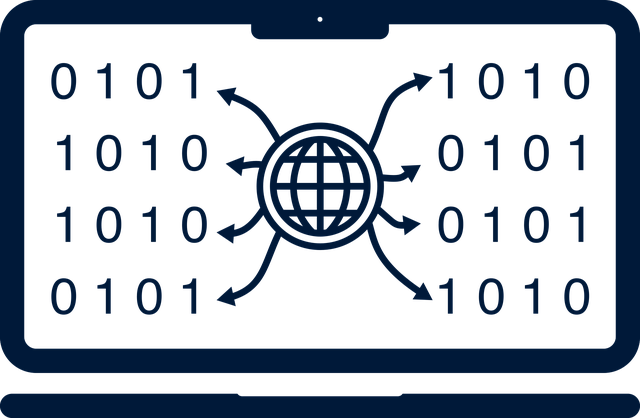In today's globalized business landscape, adhering to local ethics and laws is paramount for multinationals. Accurate UK Code of Conduct and Ethics translation services bridge cultural gaps by specializing in both language and local customs. These services tailor complex ethical frameworks to diverse regions, preserving original intent regarding data privacy, anti-corruption, and human rights. Quality Assurance (QA) processes, including expert reviews, proofreading, and back-translation, ensure consistent and accurate translations that maintain the integrity of ethical guidelines across markets. Advanced technology and rigorous training empower translators to communicate UK business ethics effectively worldwide.
In today’s globalised business landscape, ensuring ethical practices across borders is paramount. This article guides you through navigating the complexities of translating ethical standards, with a focus on the UK Code of Conduct and Ethics. We explore crucial aspects like accurate translation, cultural nuances, document consistency, quality assurance, and the importance of expert training in ethical translation services to maintain integrity in every language. Implement these practices for truly compliant global business operations.
- Understanding the UK Code of Conduct and Ethics
- The Importance of Accurate Translation
- Cultural Considerations in Ethical Translation
- Ensuring Consistency Across Documents
- Quality Assurance and Review Processes
- Training and Expertise in Ethical Translation Services
Understanding the UK Code of Conduct and Ethics

The UK Code of Conduct and Ethics serves as a foundational framework for businesses operating within the United Kingdom, outlining core principles and values that promote ethical behaviour. When expanding globally or engaging in international trade, understanding and adhering to local ethical standards is paramount. For businesses dealing with UK Code of Conduct and Ethics translation services, accurate and culturally sensitive interpretation is crucial. This involves not only translating legal and ethical obligations but also ensuring that the cultural nuances underlying these principles are preserved across languages.
Effective compliance requires a deep grasp of both the source and target cultures. Professional translators must be adept at navigating complex ethical landscapes and possess knowledge of local business practices to deliver precise translations. By doing so, they enable multinational corporations to stay true to their core values while adapting to diverse market requirements, thereby fostering trust and maintaining positive reputations among stakeholders globally.
The Importance of Accurate Translation

In today’s global business landscape, companies operating internationally must ensure they adhere to local laws and ethical standards. Accurate and culturally sensitive translation plays a pivotal role in this process. When it comes to ethics and compliance, a simple linguistic conversion is not enough; it requires a deep understanding of cultural nuances and legal requirements. This is where professional UK Code of Conduct and Ethics translation services step in as essential tools.
They help organizations convey complex ethical frameworks consistently across different languages and regions. Accurate translation ensures that the intended message—be it about data privacy, anti-corruption measures, or human rights—is not only preserved but also effectively communicated to diverse audiences. Moreover, these services can tailor translations to specific industries, ensuring compliance with sector-specific regulations and best practices.
Cultural Considerations in Ethical Translation

When translating ethical business practices into different languages, cultural considerations are paramount. The UK Code of Conduct and Ethics translation services must be approached with a deep understanding of local customs, values, and norms to ensure that the translated content resonates and is accepted by the target audience. For instance, what is considered ethical behaviour in one culture might not hold the same weight or interpretation in another. Therefore, translators should not merely substitute words but also understand the cultural context behind them.
Cultural nuances extend to various aspects of business practices, including communication styles, decision-making processes, and expectations around privacy. For example, some cultures value directness while others prefer indirect communication. In some regions, sharing personal information might be more acceptable than in others. Translators must be adept at navigating these differences to convey the intended message accurately and ethically.
Ensuring Consistency Across Documents

Ensuring consistency across documents is a vital aspect of maintaining ethical business practices, especially when dealing with sensitive topics like the UK Code of Conduct and Ethics. This requires meticulous attention to detail during the translation process, where every term and concept must be accurately conveyed in the target language while preserving the original meaning and intent.
Professional translation services for the UK Code of Conduct and Ethics should employ rigorous quality assurance checks to guarantee consistency. This involves thorough proofreading, editor review, and sometimes even back-translation to ensure that all documents adhere to a unified standard. Such measures help avoid misinterpretations or contradictions that could undermine the integrity of ethical guidelines intended for global audiences.
Quality Assurance and Review Processes

Ensuring compliance with ethical business practices in a globalized market requires rigorous Quality Assurance (QA) and review processes, especially when dealing with sensitive documents like the UK Code of Conduct and Ethics. Translation services must implement robust QA procedures to maintain the integrity and accuracy of translated content. This involves multiple rounds of reviewing by subject matter experts and native language professionals to catch any discrepancies or cultural nuances missed during the initial translation phase.
Effective review processes include meticulous proofreading, back-translation, and cross-referencing with original sources. Advanced technology, such as machine translation memory and term bases, can aid in maintaining consistency across translated documents. By adhering to these stringent QA and review practices, UK Code of Conduct and Ethics translation services can guarantee that the final product not only conveys the intended message accurately but also aligns with the source material’s ethical framework.
Training and Expertise in Ethical Translation Services

In the realm of ethical business practices, especially with global communication, translated services play a pivotal role. Ensuring compliance with guidelines like the UK Code of Conduct and Ethics in translation services is paramount. This involves equipping professionals with not just language skills but also a profound understanding of cultural nuances and ethical principles.
Training programmes must be comprehensive, encompassing topics such as cultural sensitivity, bias avoidance, data privacy, and confidentiality. Expertise in these areas fosters accurate and unbiased translations, preserving the original intent while adhering to local regulations. It’s through this blend of linguistic proficiency and ethical awareness that businesses can navigate the complexities of international communication with integrity.
When offering or utilizing UK Code of Conduct and Ethics translation services, adhering to ethical guidelines is paramount. This involves not only precise translation but also a deep cultural understanding to avoid nuances that could be misconstrued. Ensuring consistency across documents, robust quality assurance, and continuous training for translators are key practices that safeguard the integrity of the original message. By embracing these principles, translation services can promote ethical business practices on a global scale.



